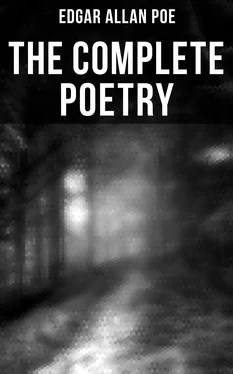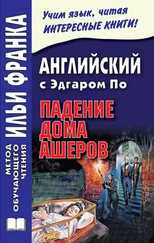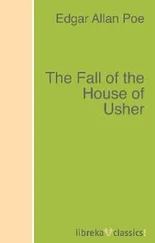Our thoughts, our souls- O God above!
In every deed shall mingle, love.
Table of Contents
Hark, echo! - Hark, echo!
'Tis the sound
Of archangels, in happiness wrapt.
Table of Contents
How often we forget all time, when lone
Admiring Nature's universal throne;
Her woods—her wilds—her mountains—the intense
Reply of HERS to OUR intelligence!
(BYRON, The Island.)
I
In youth have I known one with whom the Earth
In secret communing held—as he with it,
In daylight, and in beauty from his birth:
Whose fervid, flickering torch of life was lit
From the sun and stars, whence he had drawn forth
A passionate light—such for his spirit was fit—
And yet that spirit knew not, in the hour
Of its own fervor what had o'er it power.
II
Perhaps it may be that my mind is wrought
To a fever by the moonbeam that hangs o'er,
But I will half believe that wild light fraught
With more of sovereignty than ancient lore
Hath ever told—or is it of a thought
The unembodied essence, and no more,
That with a quickening spell doth o'er us pass
As dew of the night-time o'er the summer grass?
III
Doth o'er us pass, when, as th' expanding eye
To the loved object—so the tear to the lid
Will start, which lately slept in apathy?
And yet it need not be—(that object) hid
From us in life—but common—which doth lie
Each hour before us—but then only, bid
With a strange sound, as of a harp-string broken,
To awake us—'Tis a symbol and a token
IV
Of what in other worlds shall be—and given
In beauty by our God, to those alone
Who otherwise would fall from life and Heaven
Drawn by their heart's passion, and that tone,
That high tone of the spirit which hath striven,
Tho' not with Faith—with godliness—whose throne
With desperate energy 't hath beaten down;
Wearing its own deep feeling as a crown.
Stanzas – to F. S. Osgood
Table of Contents
In youth have I known one with whom the Earth
In secret communing held- as he with it,
In daylight, and in beauty from his birth:
Whose fervid, flickering torch of life was lit
From the sun and stars, whence he had drawn forth
A passionate light- such for his spirit was fit-
And yet that spirit knew not, in the hour
Of its own fervor what had o'er it power.
Perhaps it may be that my mind is wrought
To a fever by the moonbeam that hangs o'er,
But I will half believe that wild light fraught
With more of sovereignty than ancient lore
Hath ever told- or is it of a thought
The unembodied essence, and no more,
That with a quickening spell doth o'er us pass
As dew of the night-time o'er the summer grass?
Doth o'er us pass, when, as th' expanding eye
To the loved object- so the tear to the lid
Will start, which lately slept in apathy?
And yet it need not be- (that object) hid
From us in life- but common- which doth lie
Each hour before us- but then only, bid
With a strange sound, as of a harp-string broken,
To awake us- 'Tis a symbol and a token
Of what in other worlds shall be- and given
In beauty by our God, to those alone
Who otherwise would fall from life and Heaven
Drawn by their heart's passion, and that tone,
That high tone of the spirit which hath striven,
Tho' not with Faith- with godliness- whose throne
With desperate energy 't hath beaten down;
Wearing its own deep feeling as a crown.
Tamerlane (early version)
Table of Contents
I.
I have sent for thee, holy friar;
But 'twas not with the drunken hope,
Which is but agony of desire
To shun the fate, with which to cope
Is more than crime may dare to dream,
That I have call'd thee at this hour:
Such, father, is not my theme—
Nor am I mad, to deem that power
Of earth may shrive me of the sin
Unearthly pride hath revelled in—
I would not call thee fool, old man.
But hope is not a gift of thine;
If I can hope (O God! I can) It falls from an eternal shrine.
II.
The gay wall of this gaudy tower
Grows dim around me—death is near.
I had not thought, until this hour
When passing from the earth, that ear
Of any, were it not the shade
Of one whom in life I made
All mystery but a simple name,
Might know the secret of a spirit
Bow'd down in sorrow, and in shame.—
Shame, said'st thou?
Ay, I did inherit
That hated portion, with the fame,
The worldly glory, which has shown
A demon-light around my throne,
Scorching my sear'd heart with a pain
Not Hell shall make me fear again.
III.
I have not always been as now—
The fever'd diadem on my brow
I claim'd and won usurpingly—
Ay—the same heritage hath given
Rome to the Cæsar—this to me;
The heirdom of a kingly mind—
And a proud spirit, which hath striven
Triumphantly with human kind.
In mountain air I first drew life;
The mists of the Taglay have shed
Nightly their dews on my young head;
And my brain drank their venom then,
When after day of perilous strife
With chamois, I would seize his den
And slumber, in my pride of power,
The infant monarch of the hour—
For, with the mountain dew by night,
My soul imbibed unhallow'd feeling;
And I would feel its essence stealing
In dreams upon me—while the light
Flashing from cloud that hover'd o'er,
Would seem to my half closing eye
The pageantry of monarchy!
And the deep thunder's echoing roar
Came hurriedly upon me, telling
Of war, and tumult, where my voice,
My own voice, silly child! was swelling (O how would my wild heart rejoice And leap within me at the cry) The battle cry of victory!
*****
IV.
The rain came down upon my head
But barely shelter'd—and the wind
Pass'd quickly o'er me—but my mind
Was maddening—for 'twas man that shed
Laurels upon me—and the rush,
The torrent of the chilly air
Gurgled in my pleased ear the crush
Of empires, with the captive's prayer,
The hum of suitors, the mix'd tone
Of flattery round a sovereign's throne.
The storm had ceased—and I awoke—
Its spirit cradled me to sleep,
And as it pass'd me by, there broke
Strange light upon me, tho' it were
My soul in mystery to steep:
For I was not as I had been;
The child of Nature, without care,
Or thought, save of the passing scene.—
V.
My passions, from that hapless hour,
Usurp'd a tyranny, which men
Have deem'd, since I have reach'd to power,
My innate nature—be it so:
But, father, there lived one who, then—
Then, in my boyhood, when their fire
Burn'd with a still intenser glow;
(For passion must with youth expire)
Even then , who deem'd this iron heart In woman's weakness had a part.
I have no words, alas! to tell
The loveliness of loving well!
Nor would I dare attempt to trace
The breathing beauty of a face,
Which even to my impassion'd mind, Leaves not its memory behind. In spring of life have ye ne'er dwelt Some object of delight upon, With steadfast eye, till ye have felt The earth reel—and the vision gone? And I have held to memory's eye One object—and but one—until Its very form hath pass'd me by, But left its influence with me stilL
Читать дальше












